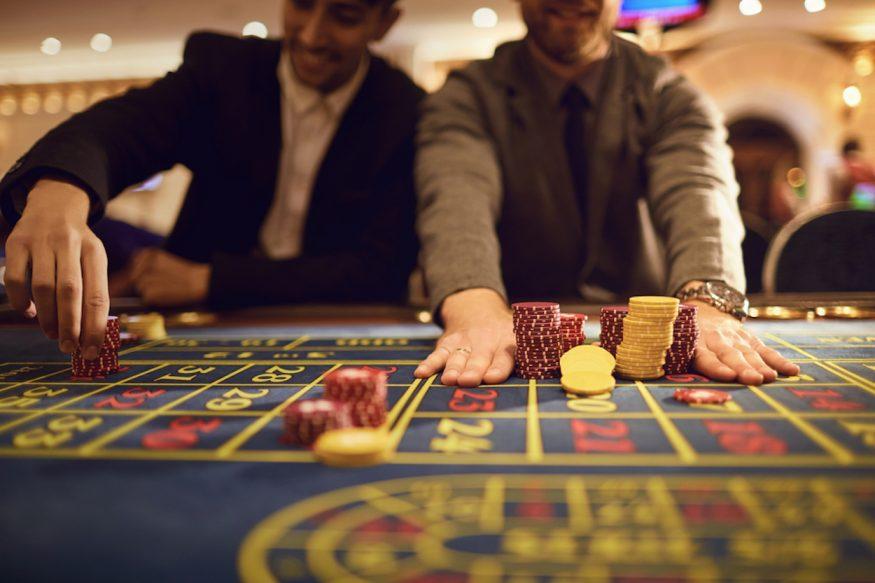R. Paul Wilson On: Strategies for Becoming a More Skilled Gambler

Understanding the Risks: Knowledge as the First Line of Defense
Entering any gambling environment without adequate knowledge or prior preparation risks leading to costly mistakes. When you step into unfamiliar territory, it's natural to pick up cues quickly and draw conclusions from whatever information or experience you have. Unfortunately, in the world of gambling, your earliest impressions and strategies-formed when you know the least-can harden into habits that persist for years, influencing your play long after their utility has faded.
Early Lessons: Why Initial Experiences Shape Long-Term Play
Not all gamblers fall prey to this cycle, but the majority do. Many successful players eventually recognize that their approach isn’t working and make a conscious effort to re-evaluate, adopting better habits that give them a fighting chance in the long run. However, self-reflection is rare-particularly if your initial forays were fortunate.
To illustrate this, let’s look at a common scenario: introducing a friend to craps in Las Vegas. As someone who prefers conservative bets, sticking primarily to the pass line and odds, you might patiently enjoy the social experience and risk only what you’re willing to lose. But a novice, particularly one who wins big that first night by trying a mix of wild bets and following veteran gamblers at the table, can easily be swayed by the allure of quick profit.
That initial streak can set a lifelong trajectory: convinced that gambling is easy and lucrative, it’s all too easy for players to believe their early luck is a sign of a winning formula. This leads to the adoption of risky betting systems, especially when encouraged by the camaraderie at the table and advice from dealers or fellow gamblers. In reality, these lessons are often built on incomplete or misleading information, resulting in poor decision-making and flawed beliefs that are difficult to shake.
The Danger of False Beliefs and Incomplete Assumptions
When we’re misled by selective information, we come to accept distorted reasoning as truth. Magicians know this principle well: the strongest illusions occur not from what the magician says, but from the conclusions the audience draws independently-often with limited facts.
Likewise, the “story” gamblers tell themselves about why they won or lost is often more convincing than any advice from friends or experts. This can result in years of repeated mistakes, all stemming from that very first mistaken impression.
Resetting Your Approach: Practical Realism at the Casino

Many gamblers fall into routines-sometimes established by the wrong crowd-that are hard to break, especially if you’re unwilling to honestly assess your results. Ask yourself a few essential questions to regain control:
- Are you genuinely enjoying the experience, or are you playing out of habit or compulsion?
- Are your losses reasonable trade-offs for the entertainment you’re getting?
- Is the act of playing more important to you than winning money?
Recognizing when your experience is no longer enjoyable or when your losses outweigh the fun can help you avoid falling deeper into negative patterns. If you find yourself dipping into essential savings or playing beyond your limits, it’s vital to stop and reconsider your relationship with gambling, and to seek help if needed.
Evaluating Your Methods: How to Rebuild Solid Foundations
Whatever your current skill level or results as a gambler, it pays to use your accumulated experience to revisit and refine your style of play.
If your approach is based on little more than that one night when your luck was running hot-or on the advice of others who may not have your best interests at heart-it may be time to do some self-education. Here’s how to get started:
- Study books by respected authors to understand game odds, strategies, and bankroll management.
- Observe skilled players and compare their habits to your own.
- Be prepared to unlearn what “worked” if it isn’t based on sound strategy.
Remember, betting on random hunches might pay off on occasion, but luck never lasts. Over time, reckless gambling will erode your bankroll and your confidence.
Long-Term Perspective: Avoiding Costly Mistakes for the Future
A clear-eyed approach is the foundation of lasting success. Instead of clinging to superstitions or one-off wins, focus on statistics and sound gameplay. If you find yourself repeating the same errors, take it as a sign to reconsider your strategy.
Many players never challenge their beliefs, sticking to systems formed through isolated wins or unreliable tips. The most successful gamblers, however, continuously re-examine their thinking, adapt to new information, and seek out ways to gain a genuine edge.
Conclusion
Developing as a gambler requires self-awareness, discipline, and a willingness to question even your own stories. Challenge your early assumptions, look critically at your long-term outcomes, and always be ready to learn from both your wins and your losses. Only then can you hope to make gambling not just more enjoyable, but more sustainable in the long run.
Lead image: Shutterstock













